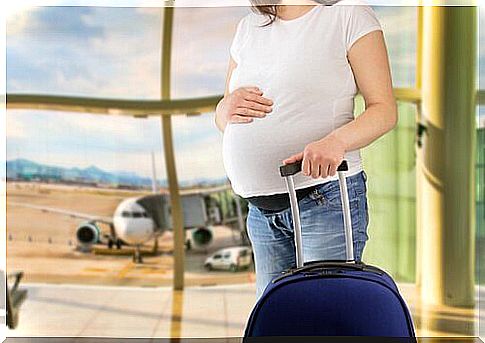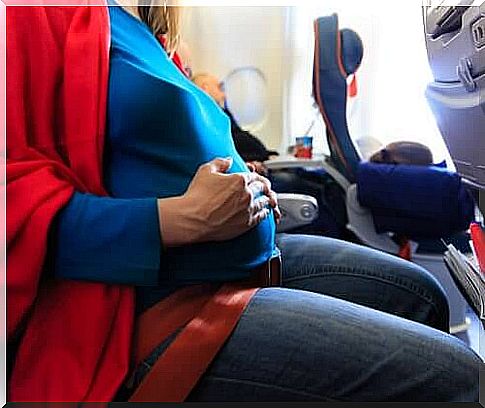Can We Fly During Pregnancy? – Being Parents

For fun, business, or shopping, a woman may be forced to fly while pregnant, and there are many myths about travel and pregnant women. A few decades ago, pregnancy was considered bad. The pregnant woman was surrounded by a halo of mystery.
Today there is access to information. Today, pregnancy is treated as a natural subject. The necessary recommendations are readily available so that the pregnant woman and those around her know what to do.
Airlines
Airline policies are one of the most important aspects to consider when planning to fly during pregnancy. The restrictions must be reconsidered, as the airline may ban boarding if the pregnant woman does not meet her requirements.
Although each airline has different restrictions, certain conditions apply to almost all airlines. Some of the more common restrictions are discussed later in this article.
1. A medical certificate
Many airlines require it to ensure pregnancy time. From week 28 of pregnancy it is mandatory for many airlines to provide one. The doctor’s authorization in which he guarantees that the pregnant woman does not suffer from any complications must appear on the certificate.
Sometimes it is necessary for the certificate to be dated within two weeks. These measures aim to avoid difficult emergency situations during a flight.
2. The duration of pregnancy
Most airlines do not allow pregnant women over 35 weeks gestation, some go up to 36 weeks. In most cases, they ask for the medical certificate from the 28th week.
3. The distance
Long flights generally have more restrictions. In all cases, it is forbidden to board a plane on dates considered too close to childbirth. This also applies to women who have recently given birth, as they have to wait for their full recovery.

4. Multiple pregnancies
Some airlines may impose special restrictions when the expectant mother is expecting several babies. It’s a fact that expectant mothers of twins, fraternal twins, or pregnancies of more than two babies should consider.
Gestation time
Until the 28th week, airlines are generally not subject to any restrictions. Although the regulations for pregnant women are not a problem, the different stages of pregnancy do affect the ease of traveling by plane.
The first trimester
It is during the first trimester that statistics count more spontaneous abortions. There is no direct link between this fact and travel, but it should be taken into consideration.
During the first trimester, the symptoms of pregnancy may be more bothersome. Nausea is one of the main drawbacks of this period. Pregnant women can experience a lot of nausea while traveling. To avoid them, we recommend:
- Smell a lemon. It can be a slice, it minimizes nausea.
- Eat little. Small portions will help prevent the urge to vomit.
- Ingest cold drinks. They help reduce nausea.
The second trimester
It is ideal for taking the plane during pregnancy. The symptoms have improved and the mother has not yet gained much weight.

The third trimester
The mother may have put on more weight, so the seats and even the toilet on the plane are uncomfortable.
Some recommendations for flying during pregnancy
- Travel with comfortable clothing. The expectant mother should avoid circulatory problems. In addition, it is important that you feel comfortable during the trip.
- Drink water. Hydration is essential so that the blood does not thicken. On airplanes, the environment is generally drier, so it is recommended that you drink plenty of water.
- Keep walking. One of the risks of traveling by plane is suffering from thrombosis. So that this does not happen, it is recommended that you get up every hour and walk for a few minutes.
- Position your seat belt correctly. It is important not to put her on her stomach. In turbulence or a choppy landing, it is important that the seat belt does not compress the mother’s abdomen.
- Eat little and light. This prevents nausea and indigestion. A complication of digestion could be difficult to manage during the flight.
It is always best to seek the advice of a doctor before flying during pregnancy as nothing can replace their advice.









